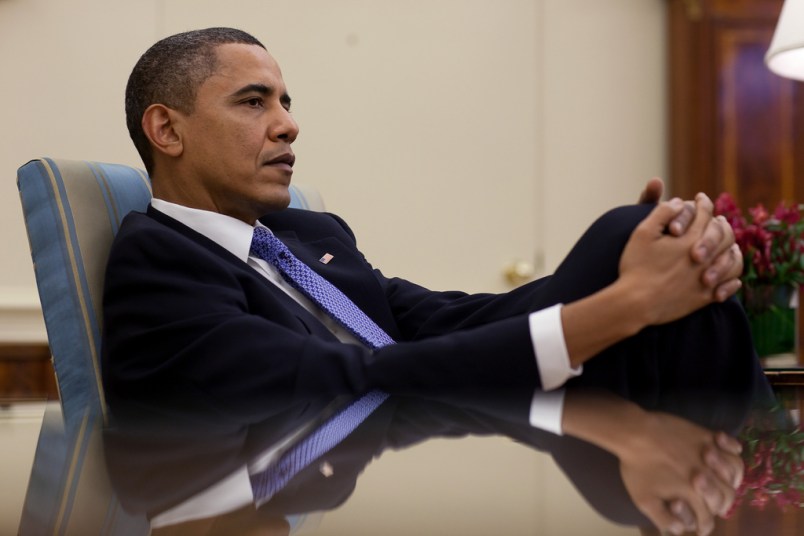Republicans have seized on a new study to argue that health care reform will harm workers, and that’s put the White House on the defensive.
One of the key political planks of President Obama’s universal health care push was the claim that his reforms would allow people who are happy with their current benefits to keep them. The argument was never completely true. In the pre-reform era, employees have been at their employers’ whims, unable to count on their benefits remaining unchanged. And come 2014, when the law is fully implemented, the reforms themselves will mean some employees are nudged into different insurance policies. But the law was designed to minimize this sort of turbulence.
Now, the political foes of reform are citing a new study by the consulting group McKinsey & Co. This concludes that the law will lead nearly half of all employers to change or scrap their health benefits plans. According to the survey, “45 to 50 percent of employers say they will definitely or probably pursue alternatives to [Employer Sponsored Insurance] in the years after 2014. Those alternatives include dropping coverage, offering it through a defined-contribution model, or in effect offering it only to certain employees. More than 30 percent of employers overall, and 28 percent of large ones, say they will definitely or probably drop coverage after 2014.”
The administration argues — and McKinsey agrees — that the new report is an outlier. Most analyses, including one by the Congressional Budget Office, suggest that employer benefits will remain largely unchanged as a result of health care reform.
That’s what happened in Massachusetts, where then Gov. Mitt Romney created a state-wide universal health care law that served as the model for “ObamaCare.” Five years after that plan took effect, the number of workers with employer sponsored coverage has actually increased.
McKinsey says one reason its results differ is because they claim to have educated respondents about the law’s incentives and benefits before fielding responses. And the truth is only time will tell how swiftly and dramatically the law will impact the market for employer-provided benefits. But its opponents make it seem as if benefits will disappear without any cost to employers, at the complete expense of their workers.
In reality, medium and large employers will pay a penalty if they choose to stop offering health benefits. Moreover, most experts expect, and the McKinsey study affirms, that employers will replace those benefits with other compensation — salary, vacation time, retirement benefits, or other perks. And such employees at or below 400 percent of the poverty line will also qualify for federal subsidies to buy insurance on the individual market.
However, if the study is correct, it would increase the projected cost of the law to the federal government. Congress could react in a number of ways, including by stiffening the penalty on employers who drop coverage. But that response will depend in large part upon the politics of the moment. If reform remains unpopular, and Republicans remain hellbent on destroying it, that would provide them a straightforward way of bleeding it dry.










